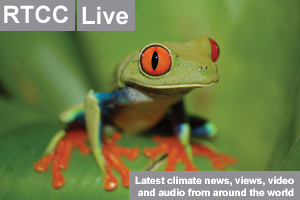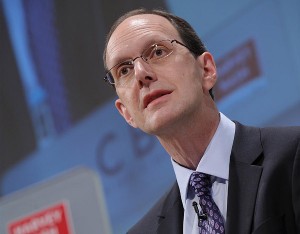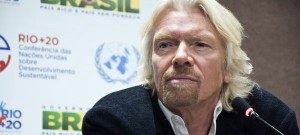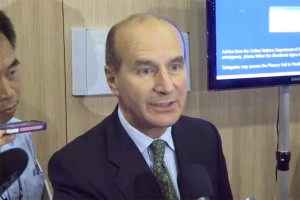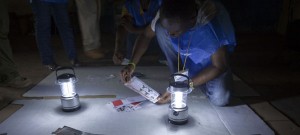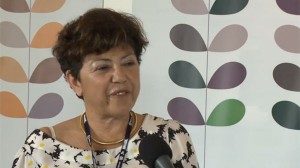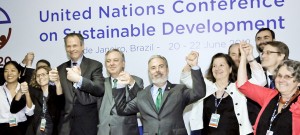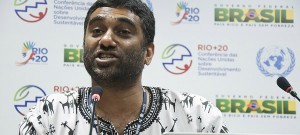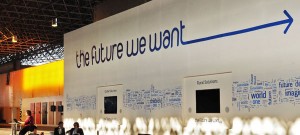Sustainable Development
Inspiring climate change action through education in Africa
Youth Profile #16: Billy Batware from United for Education and Sustainable Futures talks about how important education is to eradicating violence, poverty and climate change in the developing world.
Ban Ki-moon outlines goals for Sustainable Energy for All project
World Bank and Bank of America chiefs take up top jobs with Kandeh Yumkella appointed as Chief Executive
New Ocean Health Index shows “room for improvement”
New index aimed at scoring every coastal nation in the world on their contribution to the health of oceans finds a global average of 60 out of 100.
Qatar’s Olympic showcase hints at big role for tiny country in global climate change challenge
The Gulf state’s petrodollars look to use sport and raw ambition to drive sustainable development at home and abroad and create climate solutions.
Climate Live: US drought send food prices up, England tracks natural capital and China oil industry becomes player in North Sea
Today’s top headlines: US set to see food price rises because of drought, England tracks natural capital and China enters the North Sea oil industry.
Podcast: How can countries like Malawi benefit from the UNFCCC’s Clean Development Mechanism?
In the seventeenth in the series of UNFCCC CDM Radio Club reports, Charles Chikapa explores the benefits of the CDM for Malawi.
10 ways governments can fight climate change and support the green economy
The UK business lobby group the CBI, has said climate change action and the green economy can go hand in hand with economic growth but governments need to play their part.
Yogic farming: Hippy culture or the answer to global famine and land degradation?
Yogic farming is said to increase yields and boost the quality of the crops being grown across India – could it be an effective solution to land degradation and rising demand for food?
Was business the real winner at Rio+20?
Amid accusations that the private sector “hijacked” Rio+20 and left as the happiest party, was the conference on sustainability really the boon for business that some claim it to be?
Good news: We have four environmental winners from Rio+20
What environmental frontiers emerged as the winners from the Rio+20 outcome document?
Rio+20: Five climate change ideas that didn’t make the Earth Summit outcome
While proposals in the final text were weak, some important ones didn’t even make it into the document. RTCC looks at five ideas for climate change action that didn’t make the grade.
Jose Maria Figueres on Rio+20: We need negotiators who are connected to reality
Former President of Costa Rica says governments will only respond when they see action at home.
Rio+20: What next for civil society following Earth Summit ‘failure’?
As civil society groups across the globe denounce politicians for their lack of action, is it time for a new era where the individual and the collective take on the challenge?
Rio+20: International reaction to the sustainable development outcome
Politicians, diplomats and activists from around the globe review the Future We Want document and the process that produced.
Rio+20: How UK’s DFID will continue on sustainable development pathway
RTCC talks to Melinda Bohannon, Head of the Climate and Environment Strategy Unit at Department for International Development about how sustainability and climate change issues help shape the UK development agenda.
Rio+20: Global Environment Facility calls for more ‘synergy’ between UN departments
Now the three Rio Conventions have developed their own identities, GEF says it is time for them to examine the ways they can work together.
Rio+20: What does the Earth Summit’s outcome mean for climate change?
The Rio+20 document is jam packed with caveats, ifs, buts and maybes. So what concrete action does it contain, and what implications are there for action on climate change?
Rio+20 Comment: Summit whimpers to an inevitable conclusion
The acceptance of failure at the UN summit of sustainable development is almost worse than the failure itself.
Rio+20: Greenpeace boss slams “scandalous” politicians at Earth Summit
Kumi Naidoo criticizes leaders for failing to press for a better deal, short-term thinking and using the talks as a publicity opportunity.
Rio+20: Long way to go on road to sustainable development, say NGOs
As the Rio+20 negotiations come to a close, NGOs including Christian Aid, Oxfam and Third World Network offer their reaction to the proceedings and say they are willing to mobilise with those at the conference – both inside and outside the negotiations – to ensure a pathway forwards.
